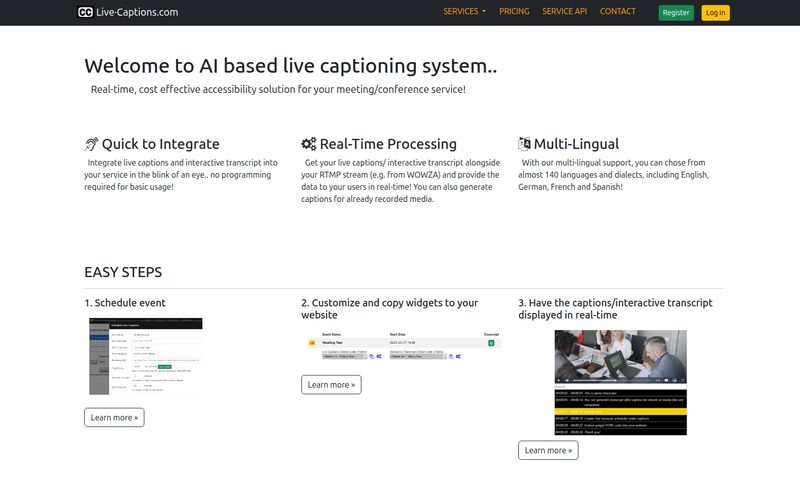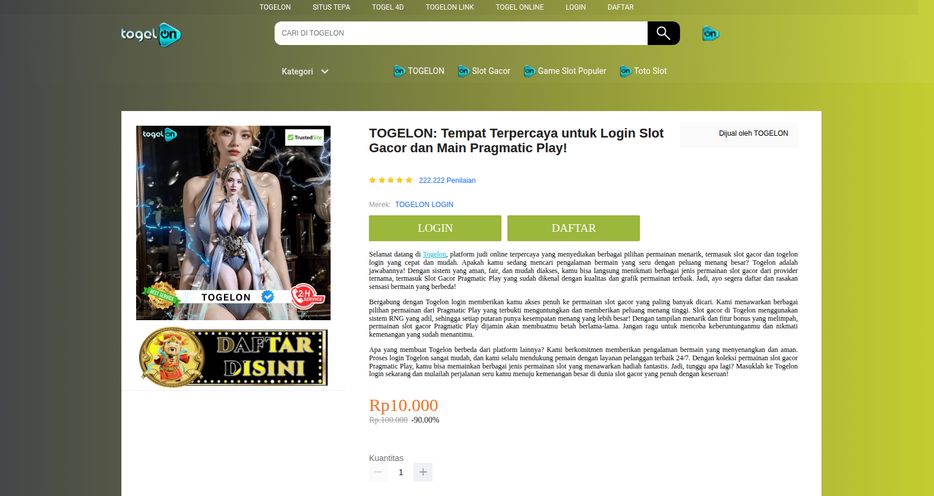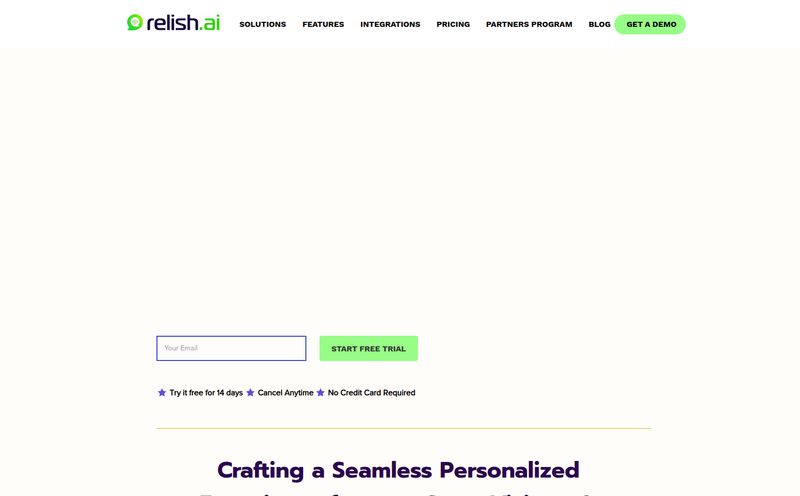Alright, let’s have a frank chat. As someone who lives and breathes SEO and digital trends, I’ve seen my fair share of AI tools pop up. Some are brilliant, some are baffling, and some are just plain bizarre. So when I first heard the phrase “Catholic AI,” my professional curiosity was piqued, but my inner skeptic raised a very prominent eyebrow. An AI that understands the nuances of 2,000 years of theology, scripture, and tradition? Color me intrigued... and a little doubtful.
We’ve all been there, right? You have a question about faith—something specific, something deep—and you turn to Google. What you get is a chaotic mess of forums with questionable moderators, blogs with personal (and often untraceable) interpretations, and maybe a Wikipedia article that’s been edited into oblivion. It can be a real headache. Finding a straight, sourced answer is like trying to find a specific needle in a haystack made of other needles.
That’s the problem Magisterium AI claims to solve. It’s not just another chatbot. It bills itself as an “answer engine for the Catholic Church.” And after spending some serious time with it, I have to say, it’s a whole lot more than I expected.
So, What Exactly Is This Thing?
Let's get one thing straight: Magisterium AI isn't trying to be the next ChatGPT for everything under the sun. It's a specialist. Think of it less like a general search engine and more like a brilliant, tireless research assistant who has exclusively studied inside the Vatican archives. Its knowledge base isn't the entire, wild-west internet. Instead, it pulls its answers directly from authoritative Catholic sources. We’re talking:
- The Magisterium of the Church (like papal encyclicals and council documents)
- The Holy Bible
- Writings from the Fathers of the Church
This is, without a doubt, its biggest selling point. Every answer it gives comes with citations. Real ones. You can click them and see the original document for yourself. For anyone who has ever been in a debate or taught a class and needed to back up a statement, this feature alone is worth its weight in gold.

Visit Magisterium AI
Putting Magisterium AI to the Test
I decided to jump right in. The interface is clean, and you can even ask a few questions without creating an account, which I appreciate. No friction. I started with a softball question: “What are the corporal works of mercy?”
The answer came back quick, clear, and perfectly listed. More importantly, it cited the Catechism of the Catholic Church, paragraph 2447. Perfect. That's what I wanted to see.
Time to turn up the heat. I asked a much more complex question, one that gets debated all teh time: “Explain the Catholic understanding of justification and its relationship to faith and works, citing relevant sources.”
This is where I expected it to stumble. But it didn't. It provided a nuanced response, pulling from the Council of Trent and the Catechism, carefully explaining the Church's position without falling into common Protestant-vs-Catholic strawman arguments. It was impressive. It felt less like an AI making stuff up and more like it was summarizing a library of trusted books for me. It’s a tool that understands its very specific lane and stays in it.
The Features That Actually Matter
Beyond the core Q&A, there are a few other components to the platform. Some are more useful than others, in my opinion.
The All-Important Cited Answers
I know I've mentioned it twice already, but it bears repeating. In an age of misinformation, getting answers with direct links to primary sources like documents from the Vatican is a game-changer. This isn’t just for academics; it’s for any curious Catholic who wants to go deeper than a surface-level blog post.
What's This "Reasoning Mode"?
The platform has a standard mode and something called “Reasoning Mode.” The free plan limits your use of this, which tells me it’s the resource-heavy, premium feature. My guess? This is for the really tough questions—the ones that require synthesizing information from multiple sources to form a coherent, essay-style argument. Think of it as the difference between asking a librarian for a book and asking them to help you write a research paper. It’s the deep-thinking function, and probably the main reason people will upgrade to Pro.
The Source Library and Other Goodies
There's also a source library you can browse, holy widgets, and Catholic news updates. These are nice additions. The source library is particularly useful if you want to read an entire encyclical without having to hunt it down. The widgets and news feel a bit like bonus material—not the core reason you'd use the tool, but pleasant to have around.
Let's Talk Money: The Pricing Breakdown
Of course, the big question is always, “What’s it going to cost me?” Magisterium AI runs on a freemium model, which I think is pretty smart. Here’s how it breaks down:
| Plan | Price | Key Features |
|---|---|---|
| Free | $0 / month | Access to 60 regular prompts per week and 5 Reasoning Mode prompts per week. |
| Pro | $8.99 / month | Unlimited prompts, unlimited Reasoning Mode, priority support, and access to new features. |
Is the Free Plan Generous Enough?
Honestly, yes. For the average person with a handful of questions a week, 60 prompts is plenty. It’s more than enough to get a feel for the platform and use it for occasional research. The 5 Reasoning Mode prompts are the perfect little taste that makes you see the value in the Pro plan.
Is the Pro Plan Worth It?
For about the price of two fancy coffees, you get unlimited access. Is it worth it? That depends entirely on who you are. If you’re a seminarian, a deacon, a priest, a catechist (shout-out to all the RCIA teachers!), an apologist, or just a really serious theology nerd, then yes. Absolutely. The time it saves and the accuracy it provides easily justify the cost. For the casual user, the free plan is probably sufficient.
The Not-So-Perfect Parts (Because Nothing Is)
I’d be doing you a disservice if I painted this as a flawless tool. The creators themselves are upfront about its limitations.
First, the responses are not always perfect. This is not the Magisterium itself; it's an AI interpreting it. It's a fantastic starting point for research, but it’s not a replacement for human intellect, prayer, and spiritual direction. Don't treat it as infallible. It’s a tool, not an oracle.
Second, the analytics tracking requires you to opt-in. I actually see this as a huge positive. It shows a respect for user privacy that is often missing in the tech world. Good on them.
Finally, the free plan has limits. This is less a flaw and more a business model, but if you’re a power user, you will hit that ceiling, especially on Reasoning Mode, and be prompted to upgrade.
My Final Verdict on This Faith-Based AI
So, what’s the takeaway? My initial skepticism has been replaced by a genuine sense of optimism. Magisterium AI is a powerful, well-designed, and responsibly created tool that fills a real need. It brings a level of academic rigor and source-based evidence to a space often clouded by opinion and confusion.
Is it going to replace your parish priest or your spiritual director? Of course not. And it's not supposed to. But will it help you prepare for a Bible study, answer your kid’s tough questions, or help you understand an encyclical you’ve been meaning to read? Without a doubt.
In a world where technology and faith often seem at odds, it’s refreshing to see a platform that uses one to beautifully illuminate the other. It's a specialized tool for a specialized job, and it does that job remarkably well.
Frequently Asked Questions
Is Magisterium AI free to use?
Yes, there is a generous free plan that offers 60 regular prompts and 5 “Reasoning Mode” prompts per week. This is suitable for most casual users. A Pro plan is also available for unlimited access.
What sources does Magisterium AI use for its answers?
It exclusively uses authoritative Catholic sources, including the Magisterium of the Church (like official documents and councils), the full text of the Bible, and the writings of the early Church Fathers. All answers are cited.
Can Magisterium AI replace a priest or spiritual director?
No, absolutely not. The platform is designed as a research and educational tool. It is not a substitute for pastoral care, the sacraments, or personal spiritual guidance from a human expert.
How reliable is the information from Magisterium AI?
The information is highly reliable because it is drawn directly from and cited to official Church documents. However, as with any AI, it's a tool for understanding and should be used with discernment. It’s an excellent first step in research, not the final word.
Does Magisterium AI have a mobile app?
Yes, according to their information, a mobile app is available, making it accessible on the go for both iOS and Android users.
What languages does Magisterium AI support?
The platform supports multiple languages, increasing its accessibility for Catholics around the world. You can typically select your preferred language from the main interface.



